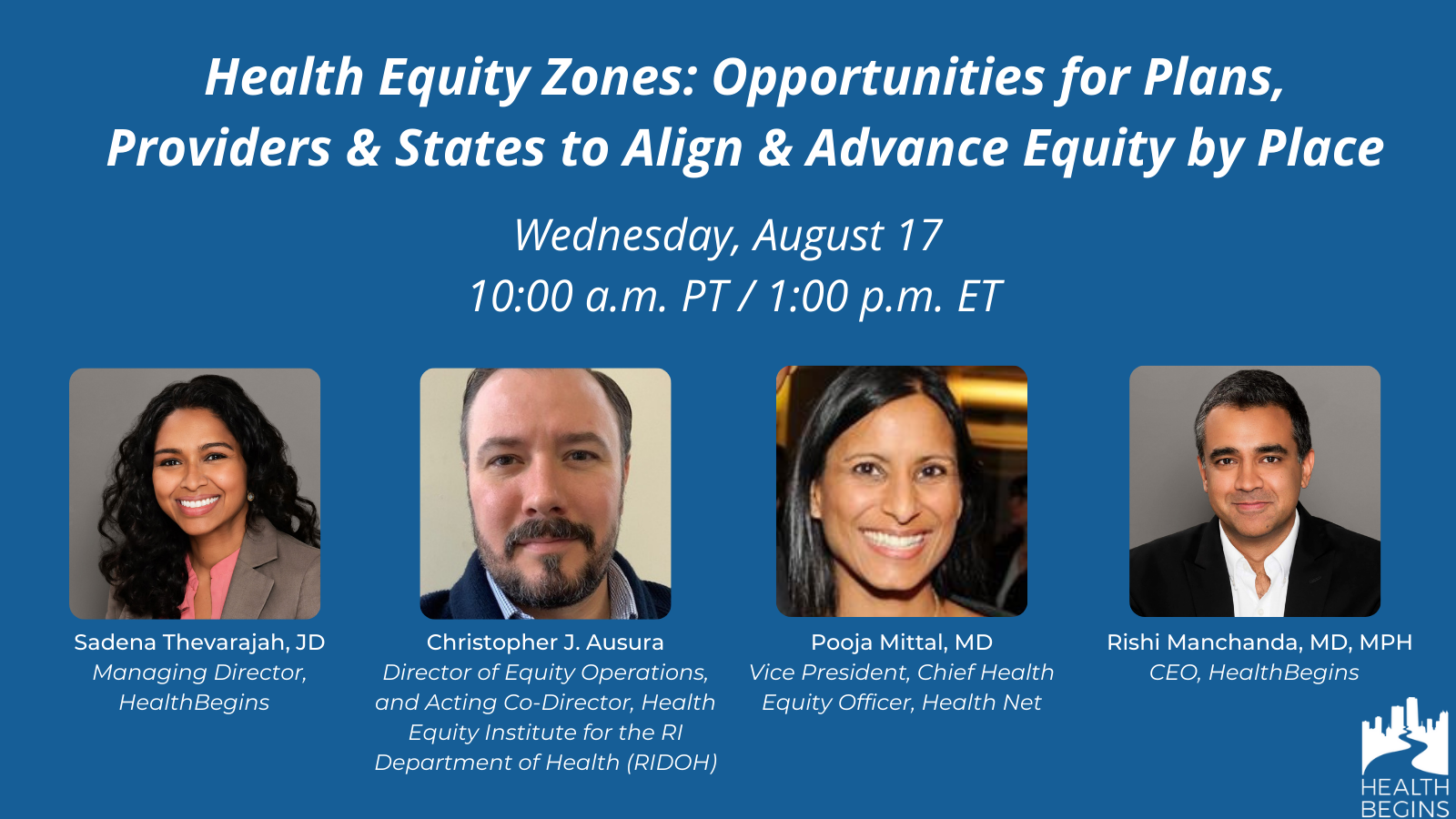As healthcare payers and systems dial up efforts to address racial and health inequity, it’s crucial to recognize that the social structures that drive inequity typically manifest in places—neighborhoods, communities, or regions—and we can amplify our effectiveness by aligning resources and collaborating with partners in these places. The need to work in concert in communities is especially clear when we see how inequities are driven not just by individual social needs but also broader structural forms of violence, which concentrate and exacerbate each other in certain geographies.
A number of states are pioneering the use of health equity zones to align multiple stakeholders to improve equity in communities marginalized by societal practices. These state public health efforts also illuminate opportunities for Medicaid policymakers, health plans, and providers to align resources and improve health equity by place.
Join us to learn from vanguard leaders who are demonstrating what can happen at a state and Medicaid health plan level when addressing social and structural drivers of health equity in defined communities.
Speakers:
- Sadena Thevarajah, JD, Managing Director of HealthBegins (host)
- Chris Ausura, Director of Equity Operations, and Acting Co-Director of the Health Equity Institute for the Rhode Island Department of Health
- Pooja Mittal, MD, Vice President, Chief Health Equity Officer, Health Net
- Rishi Manchanda, MD, MPH, CEO, HealthBegins
Webinar Objectives:
By the end of the webinar, attendees will be able to:
- Describe state-level efforts to define and improve outcomes using health equity zones.
- Identify how health plans, including Medicaid managed care plans, are applying a similar concept to improve outcomes for members.
- Describe at least two opportunities to apply an understanding of Health Equity Zones to your own work.
Featured Content
How to Read the New Federal Dietary Guidelines as a Health Equity Advocate
The new Dietary Guidelines released by the Department of Health and Human Services not only run counter to established health standards, but also against health equity goals. Here are the the issues with these guidelines and what actions health equity advocates can take for better outcomes.
Small Practices Improve Health and Health Equity in Big Ways
The EQuIP-LA effort led to statistically significant health improvements and highlighted lessons that could help amplify the impact of small practices in advancing equity in more places.
Building Community to Improve Maternal Health: Lessons from Group Prenatal Care
HealthBegins supported health centers across the country to find new ways to make maternal health more equitable and effective. The solution was Group Prenatal Care—a means of fostering community as part of the care—and the outcome was nothing short of inspiring.




